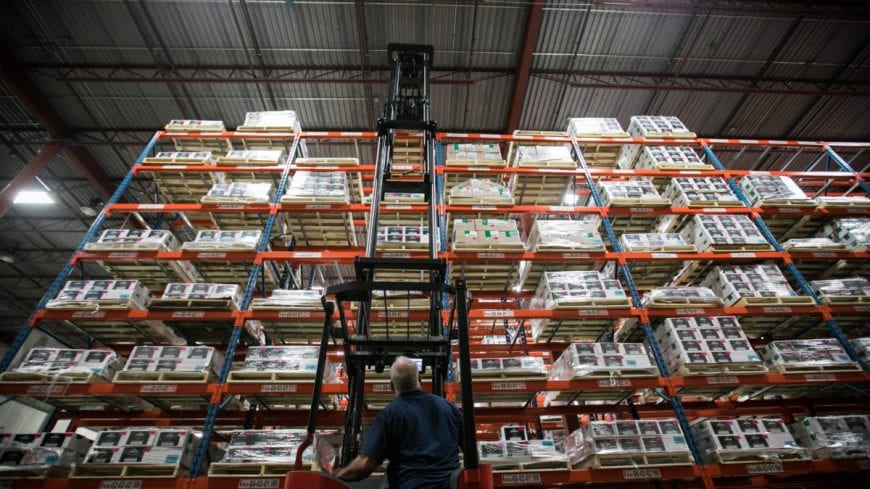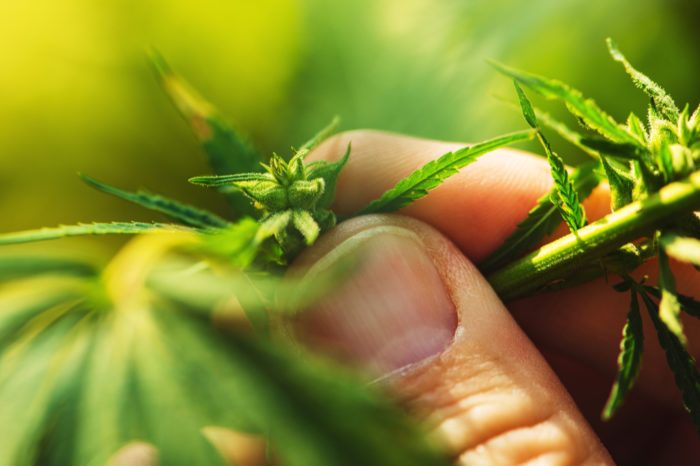Medical patients losing access, arcane regulations, and a flat out cannabis shortage are pushing people to the black market.
Editor’s Note: This article has been archived 09/09/2019.
Colorado’s governor, John Hickenlooper, has some advice for new states and countries that are legalizing cannabis. Hickenlooper is the first U.S. governor to oversee recreational cannabis sales, so he may know a thing or two about legal weed. Last week, he told Illinois lawmakers in the newly medical state, “Having let us make all the mistakes and deal with it, I think you guys are going to have a better system.”
His spiel to Illinois echoed statements he made last year to Canadians, “Hopefully you guys will learn from our mistakes.”
In many ways, Canada did learn from Colorado’s mistakes. Canada allows exports and imports of cannabis product, something Americans cannot do so long as cannabis remains federally outlawed. Canadians are free to bank on, or with, cannabis businesses, and investors can safely infuse capital into licensed weed operations. The Great North even allows online payments and deliveries. The U.S. is still wrestling with many of these issues, despite launching the first state-legal sales nearly half a decade ago.
Where Canada Fumbles
However, Canada failed spectacularly in a few ways, too. Had legislators paid attention to Hickenlooper’s warnings a year ago, they might’ve avoided these problems.
For one, there’s a major cannabis shortage across the country. This is primarily only true in the recreational shops (medical has been spared), but this creates complications, nonetheless. Product shortages mean (1) increased prices, (2) lost sales, (3) lost tax revenue, and (4) disgruntled customers.

Image Credit: via CTVnews.ca
The shortage has gotten so bad, a third of Canada’s pot customers are buying weed from the black market. Twelve stores in Quebec have closed due to shortages, and more will surely follow.
In Hickenlooper’s case, Colorado already did this dance. We saw shortages in the first year of legal sales. When we voted for legalization in 2012, the new regulations kept medical products separate from recreational. In other words, they couldn’t sell medical weed as recreational. Instead, producers had to start entirely new crops just for recreational. Some retailers hurried to get lower-quality products on the shelves. Others converted their medical dispensaries into recreational shops, skipping the growing step but robbing patients of assigned plants.
Today, things are a lot better in the Rocky Mountains. Our supply and demand have leveled off, but that doesn’t mean other states aren’t struggling with shortages – or worse, surpluses.
How To Avoid Product Shortages?
Instead of product shortages, Hickenlooper warned new municipalities against things like dosing, particularly in edibles. Canada apparently heeded that warning, but did so in a spectacularly odd way: instead of containing doses to X milligrams per serving, Canadian regulators decided to delay edibles (and vape) rollouts altogether. That means less available product on the shelves, which is likely contributing to the shortage crisis.
So, to Canada’s credit, it’s not like Hickenlooper provided caveats for the right things. He was correct when he said teen use hasn’t gone up in Colorado, because it didn’t (although vaping nicotine has become a problem in our high schools). According to the public record, he never told legislators in other states or countries to keep the taxes low so people would avoid black market cannabis. He never told anyone to ease up on production restrictions, either, which would’ve averted the shortage disaster in Canada.
RCMP Raids
Tossing salt in fresh wounds, the Royal Canadian Mounted Police (RCMP) were busy raiding licensed dispensaries last month, despite cannabis being legalized. These dispensaries are usually operating without a government-issued license, even though some are in the process.
The RCMP claims the raids were a response to illicit sales, but given the Mounties’ history of randomly raiding pot shops, it sounds like they’re still succumbing to old habits despite the sea change. Any weed confiscated from a raid will either sit at the pot shop or sit in police storage. It will go bad and not net sales for the business or the government. Seems silly, yeah?

Ontario Cannabis Store Distribution Centre. Image Credit: OCS
All-in-all, it appears Canada’s bureaucratic machine has once again reared its Terminator-like head. Rather than truly treat cannabis like any other agricultural commodity, the federal and provincial governments exploited legalization to assert their ultimate authorities over this amazing plant.
Rather than focus on regulations that protect consumers (like stringent pesticide testing), legislators and law enforcement continue to harass law-abiding businesses – and, in turn, are harassing the customers now, too.





